I ran into a client of mine and her son in the Migros (Swiss Shopping Center) a few weeks ago. I must admit that seeing the child there in front of my eyes both moved and saddened me since it reminded me that I was never able to fulfil my own desire of having a child. But it also made me really proud and happy since I now know that I can truly assist women in their desire to start a family.
I know I'm doing essential work, but we're only getting started: The first fertility fair in Switzerland was only held last year (2021). I was delighted to be able to lead a discussion alongside a number of IVF clinics and professionals, and to have so many attendees. This showed that my topic, overseas IVF clinics, is well-liked and sought after. But that’s only for one reason: in Switzerland, IVF treatments are not only excessively expensive, but also unattainable to many women who are not in heterosexual relationships or who require egg donation. Thankfully, sperm donation for lesbian couples has now been accepted, but as I previously stated, we still have a long way to go. The legalization of egg donation as well sperm donation for single women would be the next steps; this is my personal and political ambition for the next ten years. That's why I was overjoyed when a journalist from WOZ (Wochenzeitung - a Swiss weekly newspaper) contacted me to inquire about writing an article about egg donation: egg donation is illegal in Switzerland, Germany, Turkey, and Bosnia / Herzegovina, but legal in the rest of Europe.
Table of Content
- How to become pregnant when travelling overseas despite Corona
- It's not easy to find a reputable clinic
- Infertility will become more common, and we will need to address it
- There are rarely similar situations: Clients' stories
- What I've learned this year and what I'll accomplish next year
How to become pregnant when travelling overseas despite Corona
Travelling is one of my greatest passions, and I am well aware that it has become increasingly difficult in today's world. I work in tourism, and I know that as a result of the recession, not just I, but many of my co-workers have had less work or even lost their jobs. As a result, the travel industry, as well as my "medical tourism" company, had a difficult year. But I'm aware that a delay is not the same as a cancellation, and that one can travel again at any time. However, things get a little more tricky when you want to start a family, especially if you're on a tight schedule due to age and can't put off travel for too long. That's why, in conjunction with the clinics, I tried to consult customers as much as possible about travel options while also participating in excursions myself. And, as you can see, it was possible. Many clients, like myself, travelled nonetheless. I have to say that even for me, a seasoned travel guide with years of international expertise, it wasn't simple. I too have been pushed to my limits when it comes to applying for an entry permission online, scheduling PCR testing ahead of time, downloading applications, filling out documents in a foreign language, and understanding what quarantine and vaccination status issue is now in effect per country. I also needed to double-check what additional papers I needed to print and bring with me in case my battery phone dies or has no reception at the border.
I travelled four times this year and can also sum up the positive aspects of the current situation: there were definitely fewer tourists, everything was much cheaper, I had more time and more space for everything, and the shopping (especially for medications) was also super cheap due to the current exchange rate. Last spring, I travelled to Egypt with my partner, and I was able to tour the royal tombs in private. Then, in the summer, I went to Mallorca with my girlfriends and visited the Bernabeu IVF clinic, which was not only fantastic, but also quite highly attended. I visited Andalusia in the autumn with my partner and stepdaughter, and there were no lines for the Alhambra and very few people. Finally, in December, I travelled to Northern Cyprus to visit ten clinics and ten hotels in ten days. The beaches and hotels were both deserted, and I always felt comfortable and secure.
I believe we must adapt to our new "normal" lives while being agile. So, if you want to start a family but are worried about travelling abroad, you'll be in excellent hands with my support.
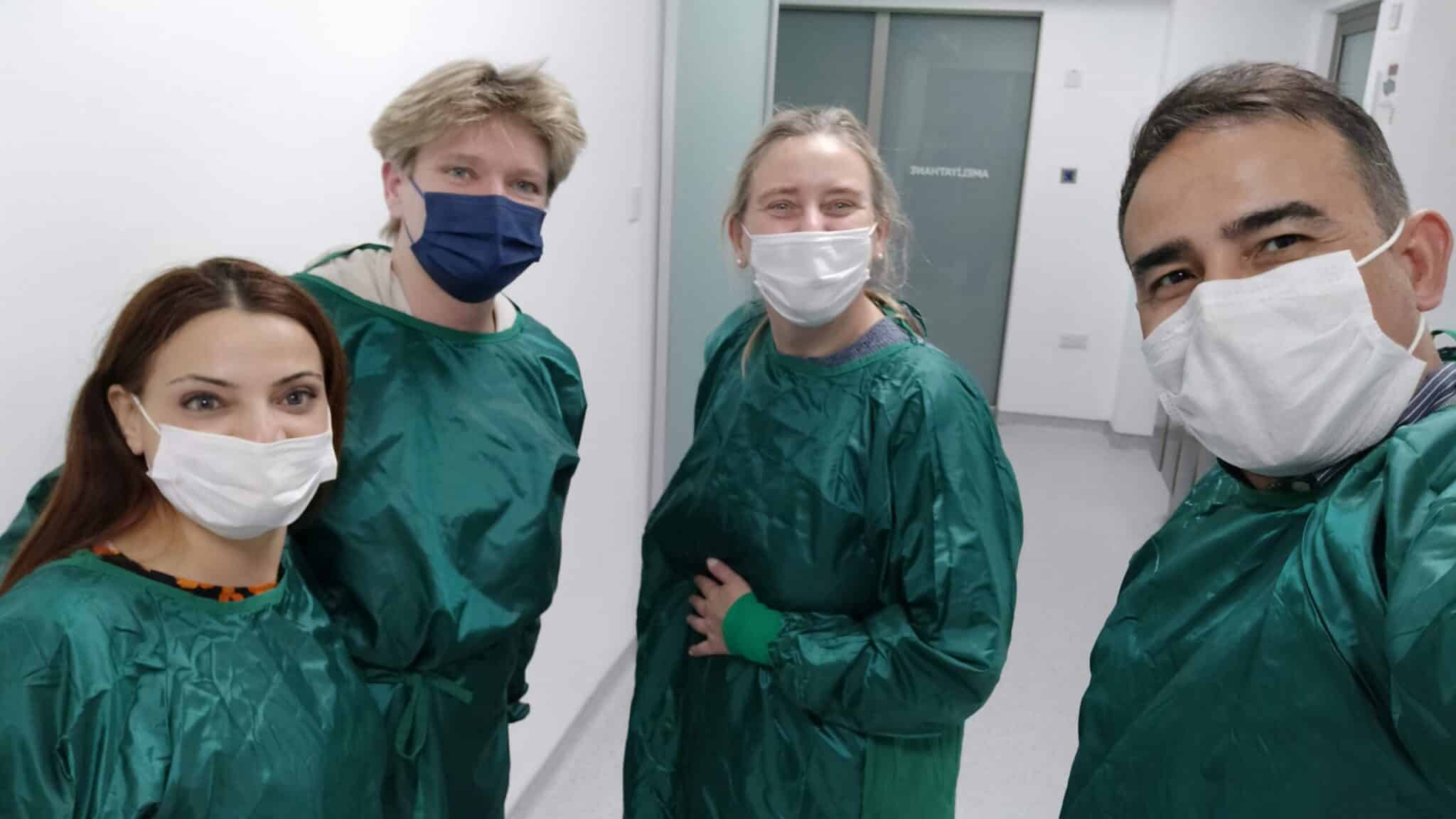
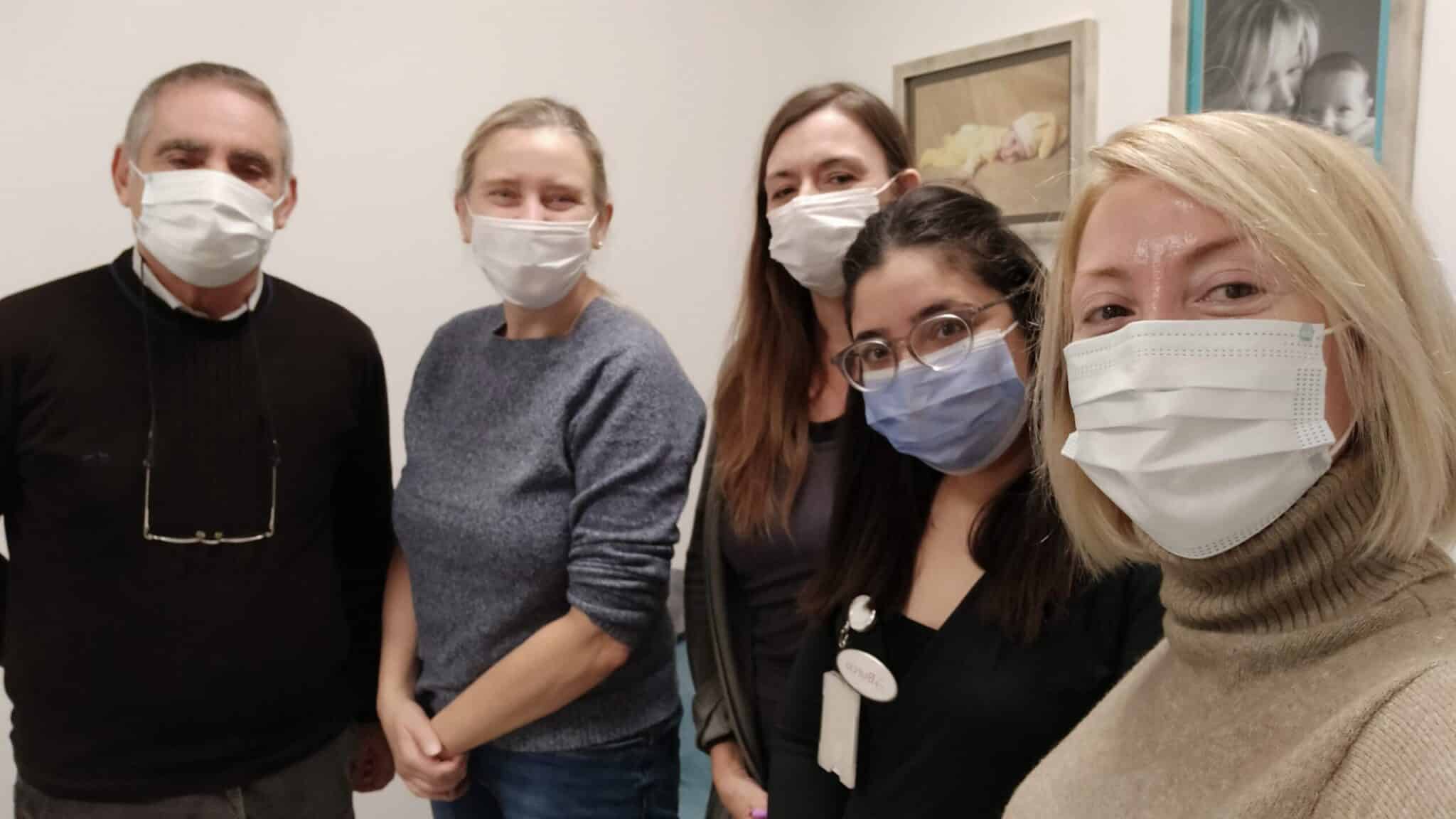
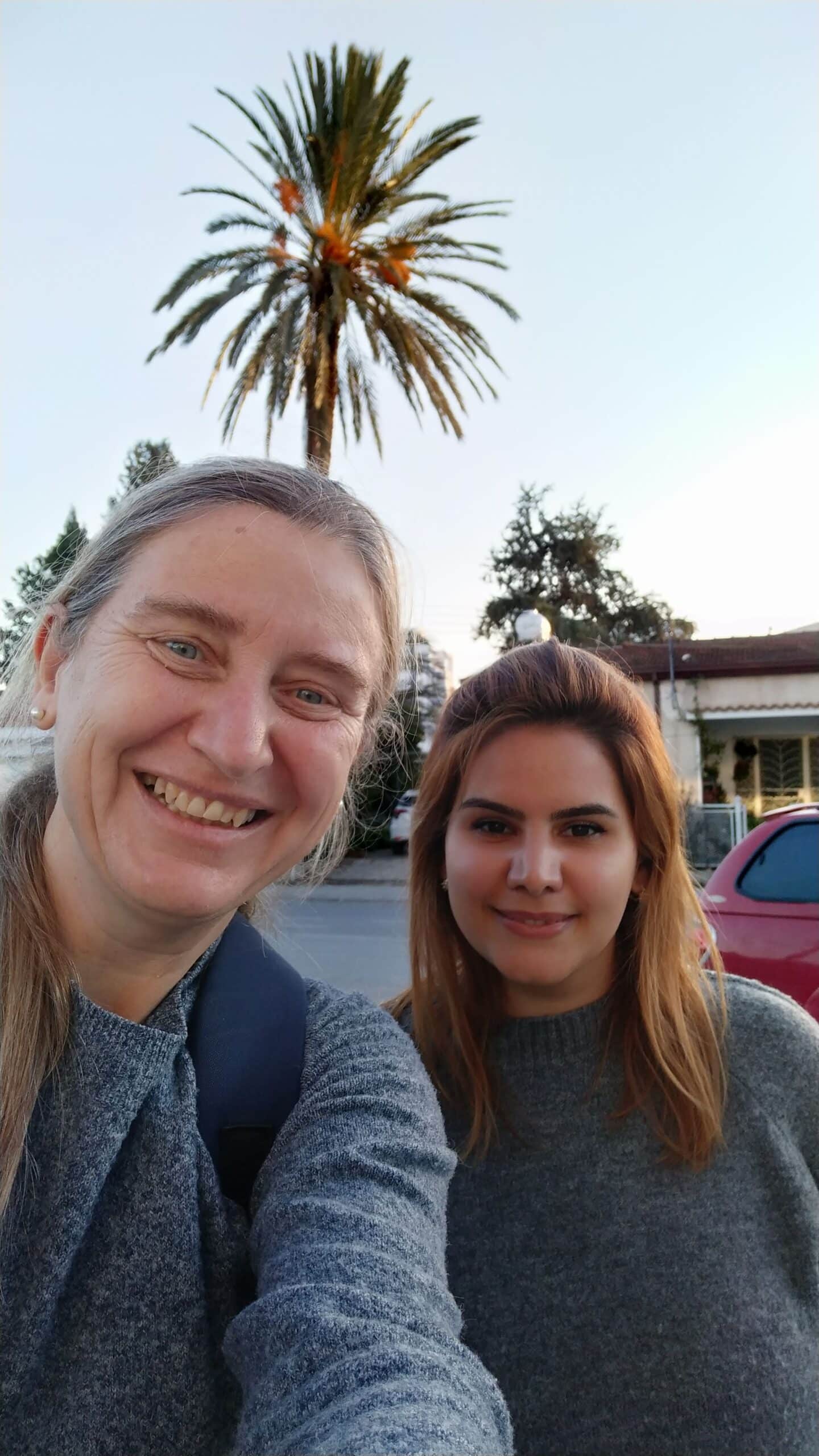
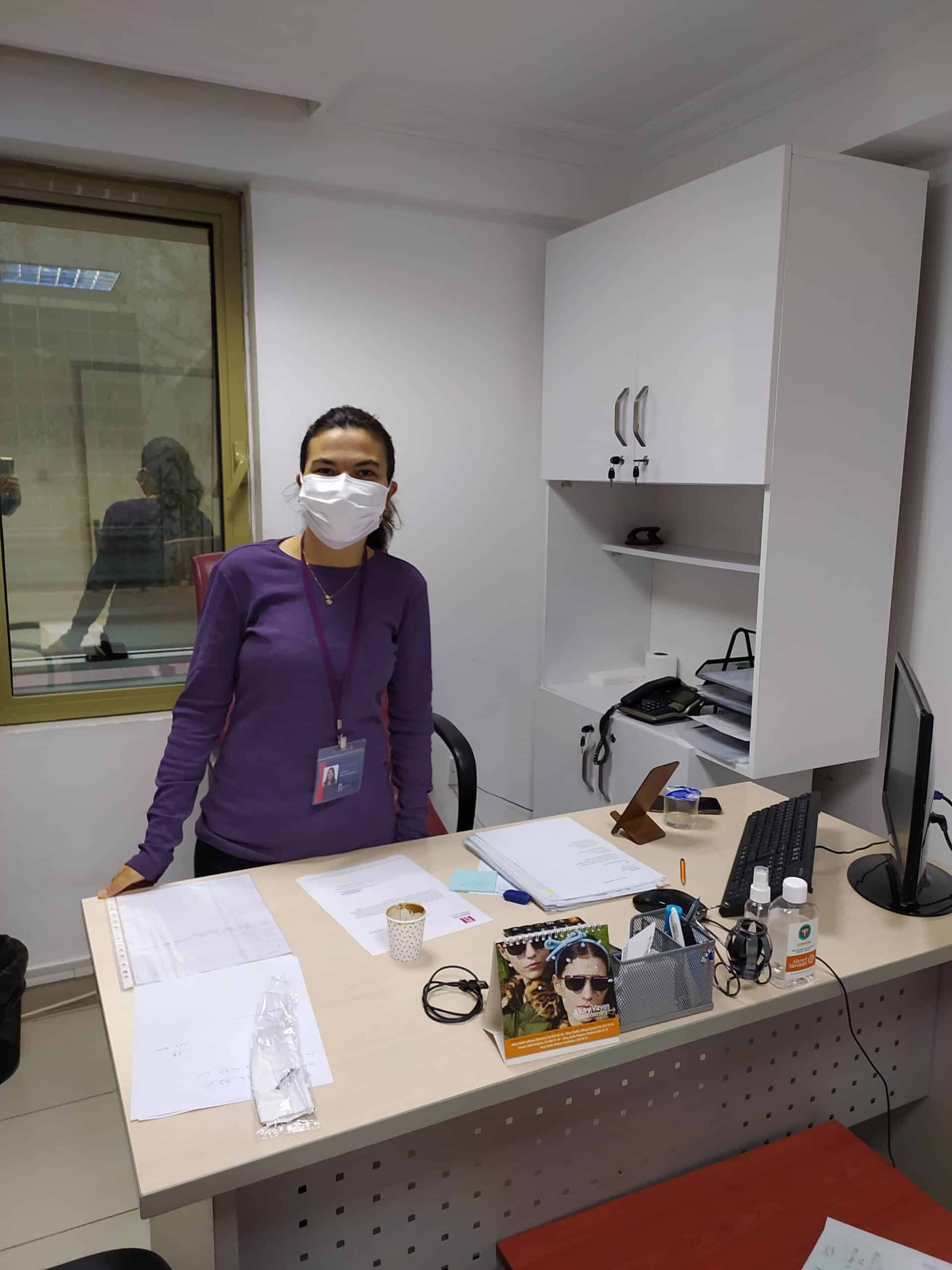
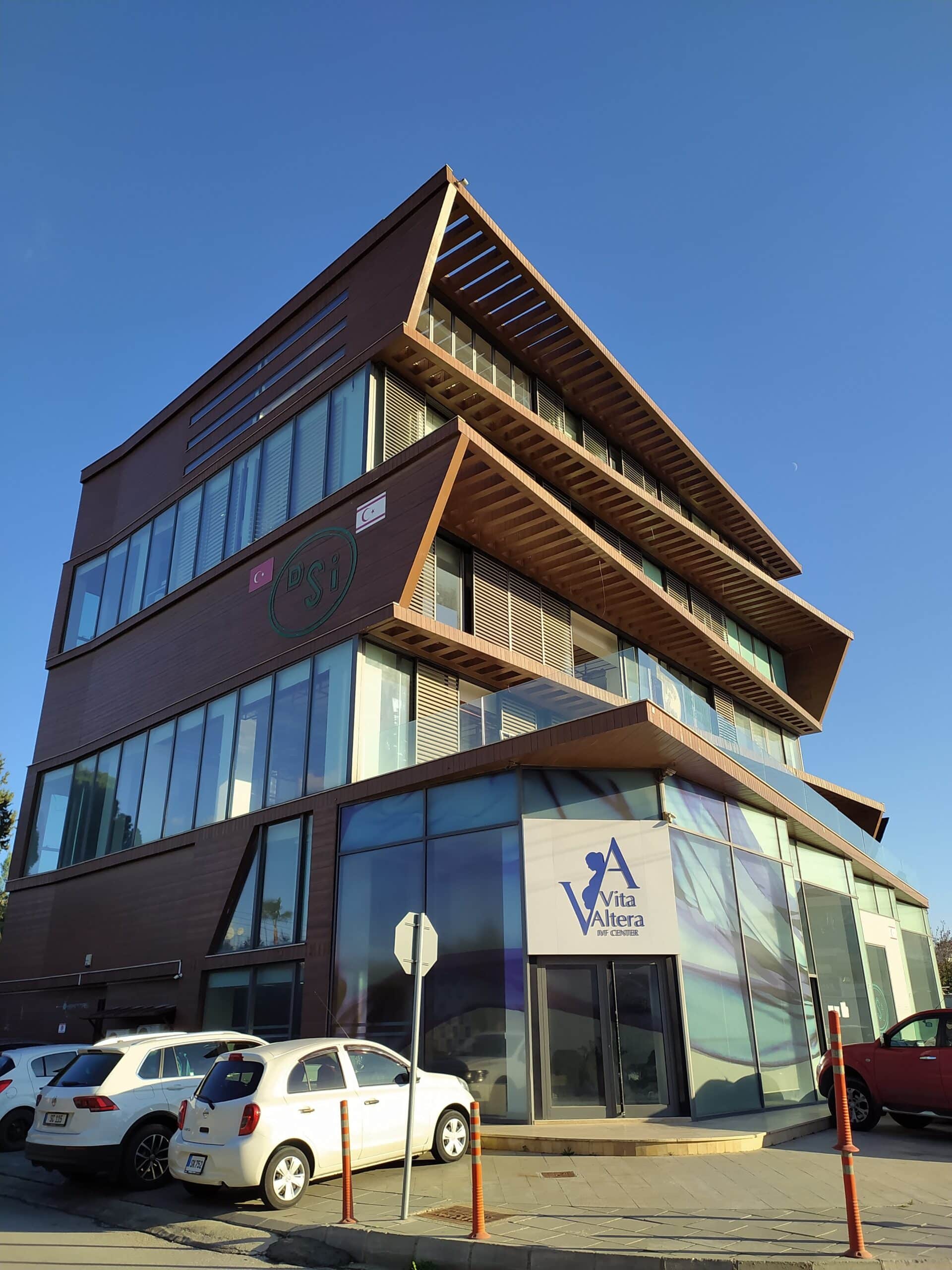
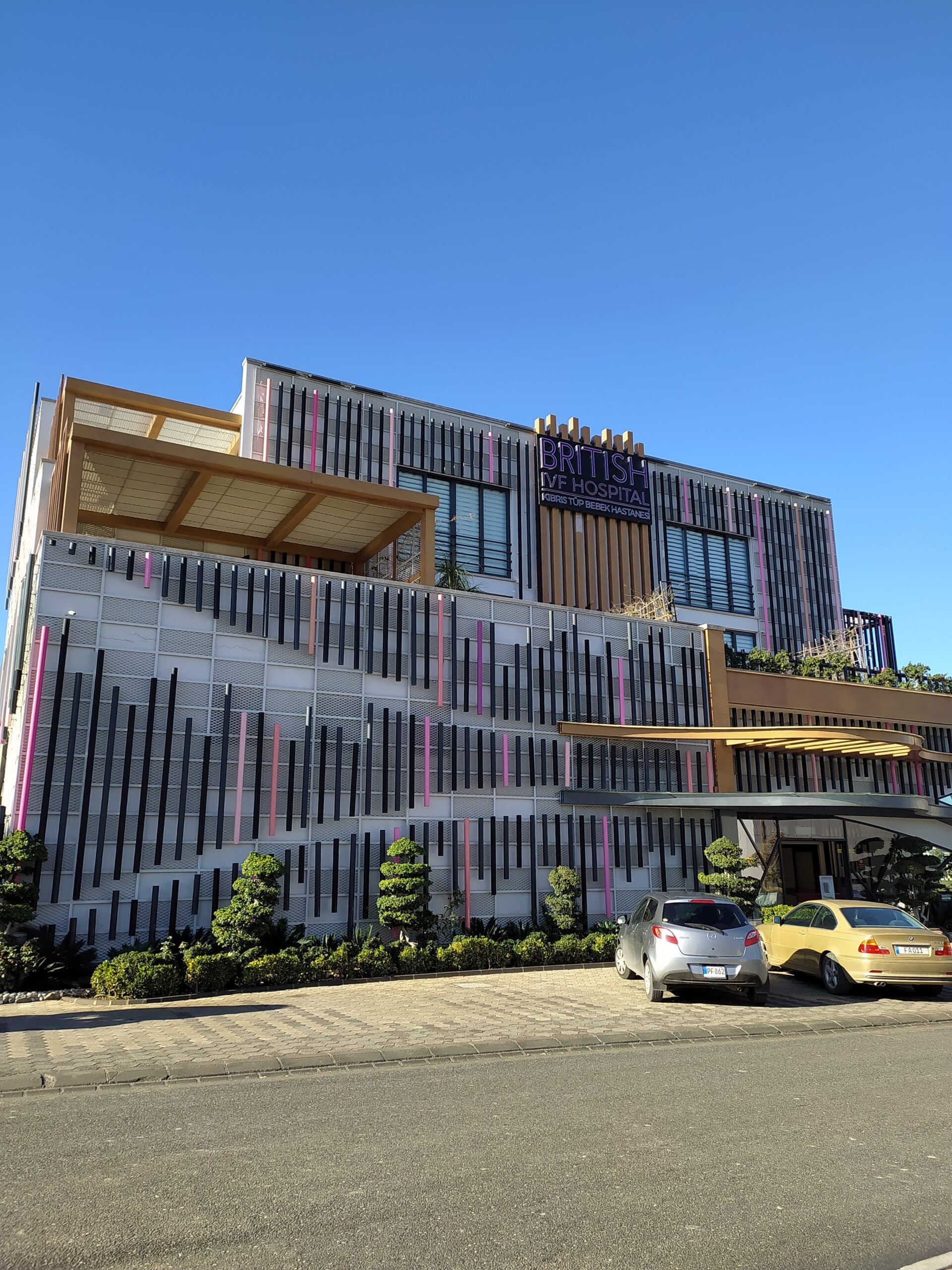
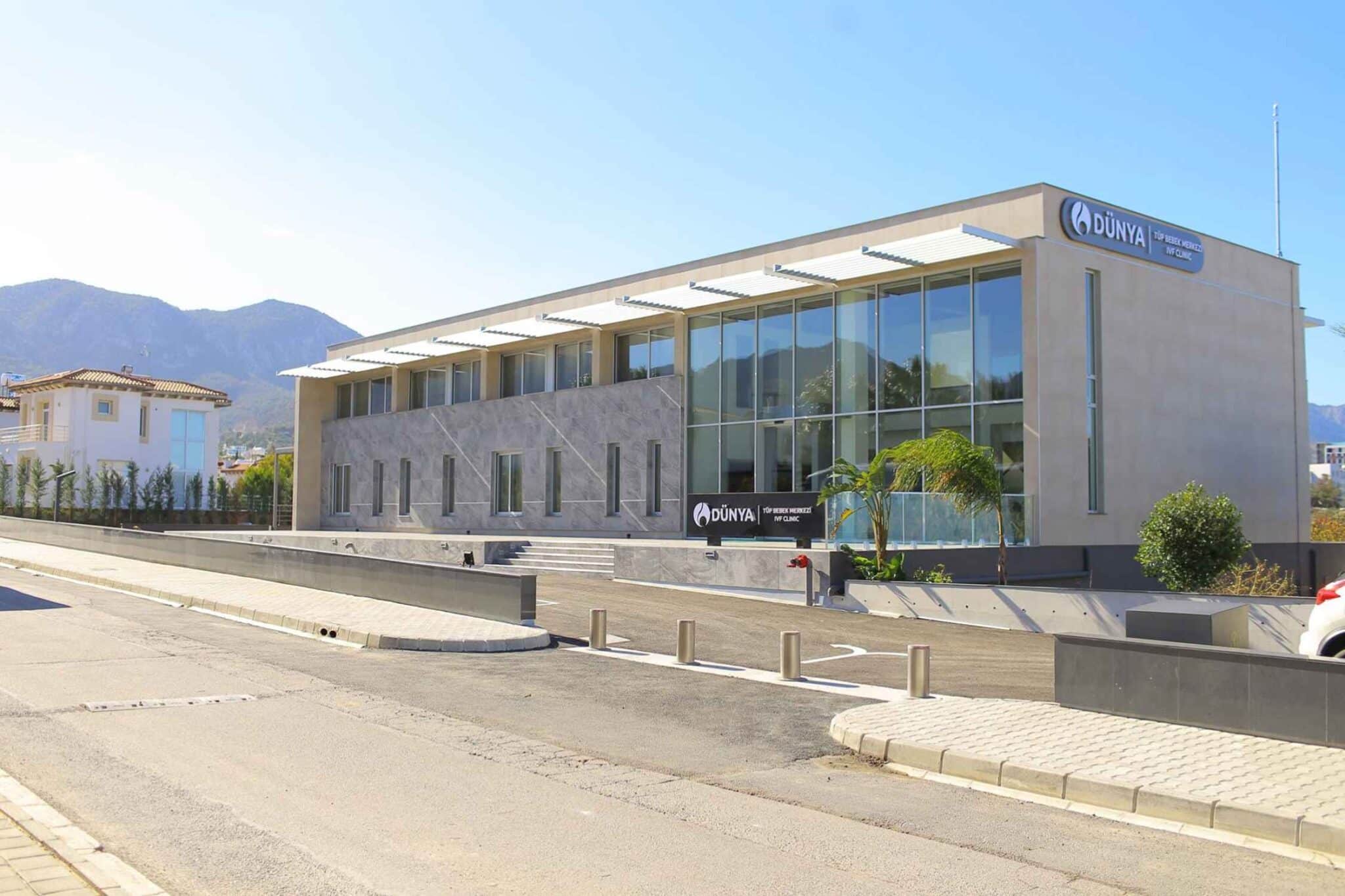
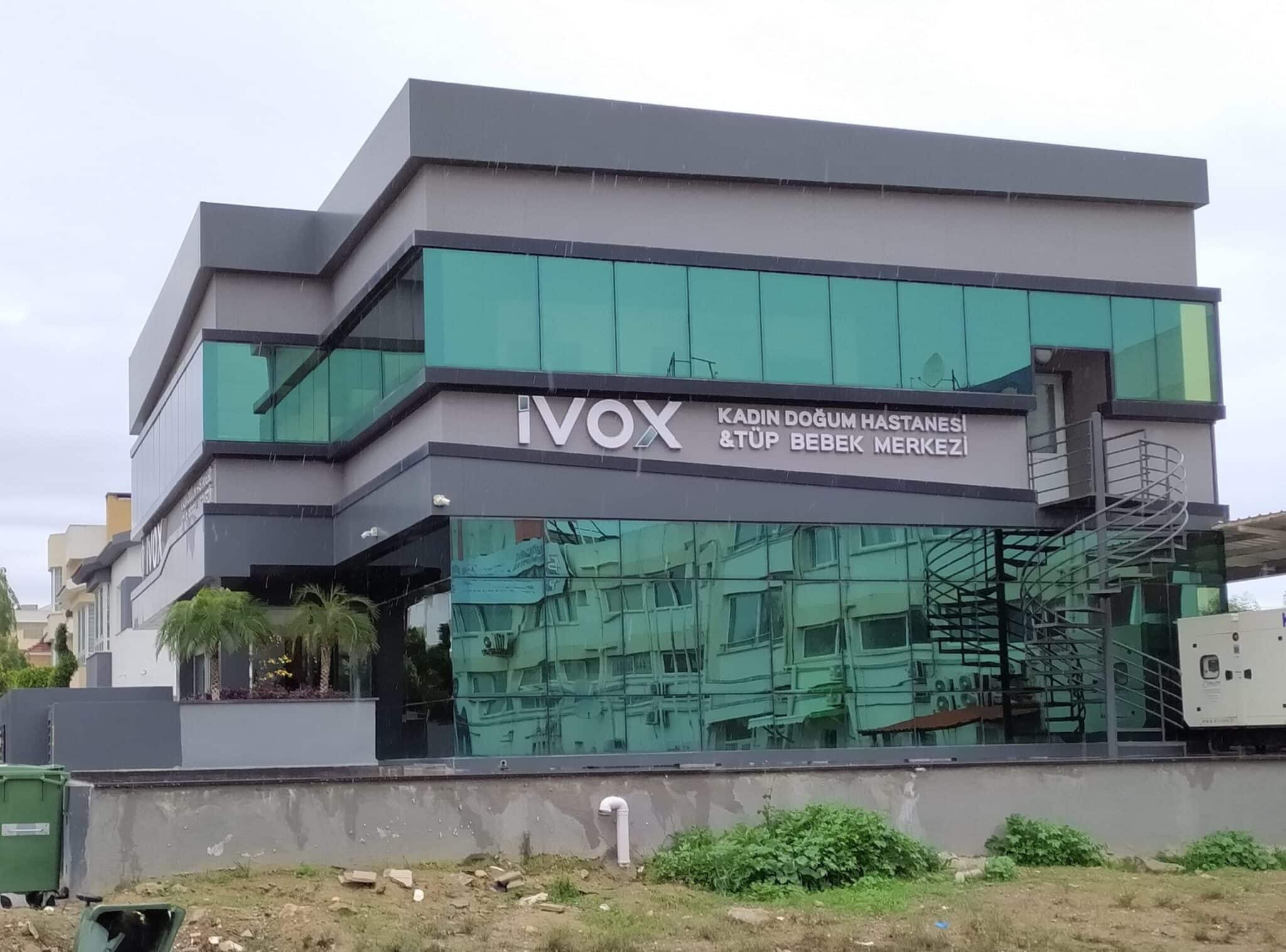
It's not easy to find a reputable clinic
In my line of work, I frequently witness conflicts between patients and clinics. Therefore, I developed a non-exhaustive list and classified the issues into three categories:
- Problems that already occur at home with the general practitioner, fertility centre, or gynaecologist.
- Mistakes that some clinics abroad make.
- Mistakes that you should take responsibility for.
To check what mistakes you could avoid, then download a copy of my list.
First, you should find assistance from professionals at home at the start of your reproductive journey and begin with the first preliminary examinations, which are frequently covered by health insurance companies. Nowadays, the more advanced fertility treatments are no longer covered in every country. In Switzerland, for instance, a 1.5-hour consultation at a fertility centre might cost as little as CHF 750. This is where the first error may occur: many patients are unaware of their needs or the options available to them if they travel abroad. Overall, therapies in Switzerland can be costly and ineffective since patients who wish to have children are not informed, for example, that egg donation may be a better option and that they can no longer become pregnant at the age of 45. This could actually happen all around the world. It profoundly disappoints me that a lot of money is taken off from women and that some doctors are untrustworthy.
Because I have spent half of my life overseas, have over 15 years of experience with clinics abroad, and have published a Master's thesis on clinics abroad, I understand how difficult it is to find a reputable clinic overseas. Not everything you read or see on the internet is accurate. It's not simply the pleasant supervisor or the excellent, bilingual website that make a difference. In fact, the advertised technologies and success rates in the clinic must match the truth. It is irritating when you cannot look into a lab and state with certainty that a specific technology is being used.
Thankfully, a lot of good things have happened in recent years. There are better and more modern technologies, more research on women's health (still insufficient in my opinion), more reporting on the desire to have children and various forums and published blog articles. Besides, women can anonymously exchange information on Facebook groups in different languages such as English and German. So please remember that your contribution and support are important in ensuring that women's voices are heard when it comes to reproductive taboos.
Infertility will become more common, and we will need to address it
Perhaps you already have a child and would like to have more? Well, secondary infertility is a new fertility issue, as the number of women struggling to have another child later in life is increasing. On average, when a woman has her first child, she is typically over 30 years old. It's possible that the father is also to blame for the inability to conceive. This is practically never brought up or considered.
Many women are unaware that each country has its own set of laws and restrictions, which I believe is due to a lack of shared knowledge and fundamental facts. In France, for example, all women, including single women and female gay couples, are entitled to four free IVF treatments. It wasn't until I was 45 and single that I realized I could have gotten an embryo donation from another country. Have you heard of mitochondrial transfer, human growth hormone, or platelet-rich plasma treatments? This is intended to make it easier for women over the age of 40 to conceive naturally utilizing their own oocyte storage. It appears that some countries and hospitals provide these technical advancements. Are you also aware of the various possibilities for becoming a father despite low or poor sperm quality? MicroChip or stem cell therapies for azoospermia, as well as Micro TESE procedures for male infertility, are also available in some countries and fertility clinics. You'll discover a lot of information on the various treatment options in my blogs.
However, I can see where we need more assistance and where I am unable to help. Unfortunately, certain diseases, such as endometriosis and PCOS, must be addressed and cannot be resolved immediately. Other situations, such as miscarriages, necessitate the assistance of experts such as psychologists. To be honest, I'm still unaware of any psychologists who specialize in infertility concerns at the moment, so if you have any suggestions, it would be extremely beneficial to many ladies.
Infertility is still a taboo subject, especially if you're single, in a lesbian relationship, over 40 or even 50, or want a specific gender for your future child. The quantity of requests for a certain gender this year amazed me. Out of over 1000 queries, I received 800 requests. I had no idea how essential gender selection was to me until this year.
To tell you the truth, I yearned for a girl. I had two miscarriages; one miscarriage occurred during the first trimester, while the other occurred during the second trimester. Even though I didn't know their gender, I gave both kids girl names (Joana and Tuana).
Now that I understand how essential it is for a lot of parents to choose the gender of their children, I want to delve deeper into the subject. I already went to ten IVF clinics in North Cyprus, which offer IVF with gender selection.
So, if you're interested in gender selection and need assistance planning your next trip, you've come to the right place. I don't know anyone who is more knowledgeable on this subject. You can download my brochure on IVF with gender selection to learn where it is possible, how much it costs, and what the success rates are.

«80% of my requests came from families with 2 or 3 daughters or sons. They wanted a baby with the opposite gender to balance the family.»
There are rarely similar situations: Clients' stories
My clients enjoy hearing about other women's experiences, but it's tough to approach them for an interview since they all want to remain anonymous or wait until they are happy mothers themselves.
This year, the Swiss TV asked me if I knew of any male clients suffering from infertility who would acknowledge it on national television. That was impossible! Then a well-known Swiss magazine approached me, asking whether I knew of any single mothers who would be willing to share their stories publicly. Unfortunately, that was also impossible.
At the moment it's practically only possible to use fake names and profiles on social networking like Instagram and Facebook Groups; otherwise, no one would share anything personal with others.
With a few anonymous short stories, I'd like to demonstrate that there is almost never a typical solution and that each story is unique and essential.
Client A had her embryos frozen at the University Hospital in Zurich. She had her embryos flown to Northern Cyprus, which was possible thanks to a specific shipping company, because she truly wanted to choose the gender of her baby. I was pleasantly surprised at how simple the entire procedure was.
With only one cycle, Client B received two euploid (genetically healthy) embryos with an AMH level of 0.4, which is like a miracle. Despite the fact that I didn't give her a chance, she insisted on attempting conception with her own eggs before trying an egg donation. At this moment, the embryos are still frozen.
Client C, who was 54 years old at the time, became pregnant after only one attempt. She wants a second child now at the age of 56 years. I warned her that it was quite dangerous for her at her age. Up to the age of 55, Northern Cyprus allows embryo transfers. At the age of 56 and if you want to become a mother later, you must fly to Ukraine.
For at least two years, Client D has been trying to persuade her spouse that IVF is necessary. At the age of 43, she was finally ready to try with her husband, and the first retrieval yielded nearly 18 eggs, which is unusual. The NGS tests were carried out on all embryos, unfortunately not a single embryo was healthy.
Client E had one embryo implanted that had not been examined, and the rest were sent for NGS testing. She didn't have the first one tested since she was desperate to become pregnant. She is now expecting a kid with trisomy 18 and is practically waiting for her baby to die in the womb: a child with trisomy 18 is incapable of life. This issue may have been avoided if competent fertility counselling had been provided.
Client F expressed a strong desire for an open sperm and egg donation. The egg donor arrived in North Cyprus from South Africa, while the sperm donor arrived from Denmark. The entire process is incredibly difficult for all parties involved; it costs a big amount of money and takes a substantial amount of time.
Both I and the clinic had a terrible time with Client G. She was uncooperative, refusing to organize any papers, completely stressed by the Covid situation, and irritable. She enrolled with me using four fictitious email addresses and two fake social media accounts, and she left me and the clinic with incredibly negative feedback.
Client H believed that even at the age of 45, she may still become pregnant. She spent 750 CHF on a cycle computer and literature on TCM and related topics. I had to listen to her say for two years that the time wasn't right because she was stressed at work, that she needed to sell her company first, and that egg donation was out of the question. She is now single and finally decided that she wanted an embryo donation from non-Covid vaccinated donors. She is still looking for a solution, but without me.
Client I wanted to be able to choose the future gender of her baby. Everything appeared to be going well; I described everything from beginning to end, and then I heard nothing from her until she returned home, not pregnant. She chose a less expensive IVF clinic that did not provide the more advantageous treatment option. Sperm sorting methods (Microsort, Swim-up, etc.) are less promising, if not used in conjunction with PGT-A. So, instead of saving EUR 1000, she lost EUR 5000.

«During an IVF treatment with gender selection, at least 7 chromosomes are examined in order to improve the success rate.»
What I learned last year and what I will do differently this year
Even after more than 15 years of expertise in the field of reproduction, there is always something new to discover. I acknowledge that I have a long way to go until I know everything, and that I must continue to learn in order to provide the best possible service to my clients. This means, among other things, visiting more clinics and fertility fairs so that my clients don't have to do the legwork themselves and can rely on my knowledge and recommendations when it comes to the best reproductive clinic and therapy for them. Therefore, I will be at the fertility fairs in London, Berlin, Paris, Köln and Zurich this year.
You learn a lot at the fairs and during personal clinic visits that you wouldn't learn anywhere else. The personal network can help me obtaining information that you would not otherwise be able to obtain. Clinics compete fiercely, and the coordinators will occasionally advise you to avoid working at a clinic with a high number of poor success rates and negative feedback. Some doctors may even try to denigrate other doctors in order to boost their own reputation. That is why I must perform a more complete analysis of the clinics in order to identify what is accurate and what is not.
During my most recent trip to North Cyprus, where I visited ten clinics, I discovered that some clinics did not tell the truths, and I had no way of validating their statements. Embryoscope, for example, is known to be used by only a few clinics, despite the fact that almost every clinic claim to have an embryoscope. Another costly technique that isn't available in every clinic is IMSI. Despite the fact that at least three clinics claim to have it, I think it only exists in Istanbul's Memorial Hospital. I was only able to see the labs on rare occasions, so I can't say which clinics are telling the truth with certainty. So, with over 4000 IVF facilities throughout the world, how are you expected to figure out which ones are right for you and trustworthy?
In the future, I'll concentrate on IVF clinics that can provide gender-specific IVF treatments. Because gender selection is legal in Northern Cyprus, Ukraine and the United Arab Emirates, I plan to visit all these clinics as soon as possible.
Because I now specialise in IVF with gender selection and the topic is not only very taboo but many women do not want to discuss the topic publicly at all, I will close my social media channels Facebook and Instagram. But instead there will be free information on Blogs, Pinterest and Google. I personal consultation on Zoom in various foreign languages and hold regular Zoom webinars, where direct questions can be put to experts, even anonymously.
I hope that I can assist you in your desire to start a family and that I can meet you soon.
Best wishes for the new year!
Nathalie.
